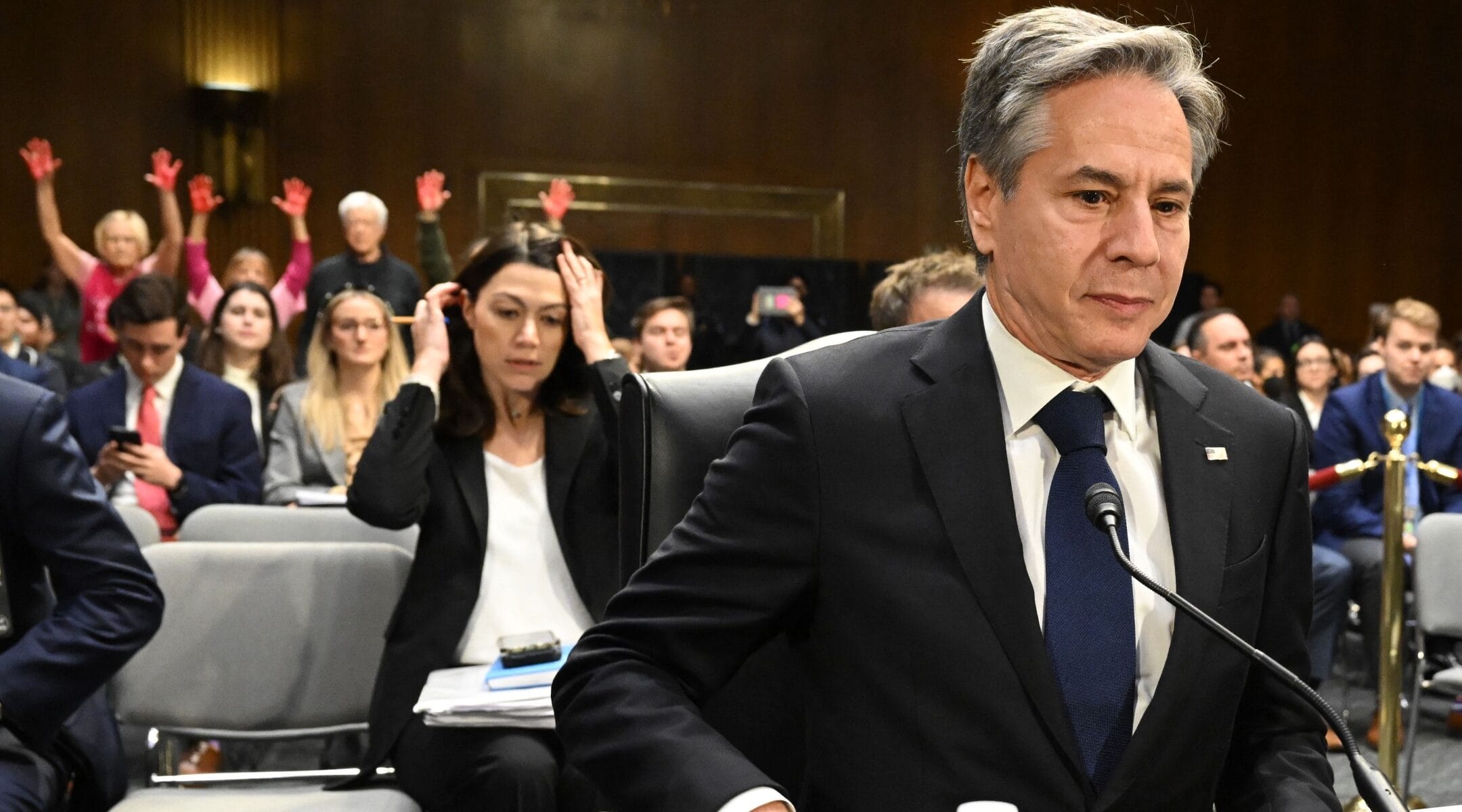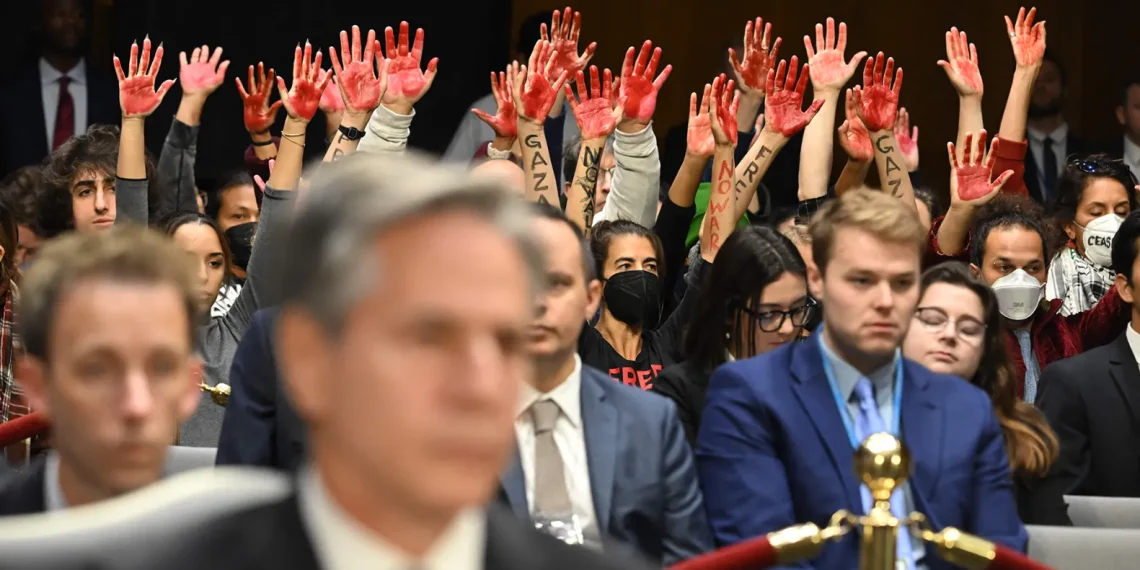Several Palestinian-Americans rejected an invitation to a roundtable discussion with US Secretary of State Antony Blinken on Thursday, expressing their dissent over the Biden administration’s continuous backing of Israel’s military campaign in Gaza.
The refusal, made through a press statement distributed by the Institute for Middle East Understanding (IMEU), emphasized the protesters’ frustration with the administration’s perceived complicity in the humanitarian toll of the conflict.
In the statement, the individuals stated, “We do not know what more Secretary Blinken or President (Joe) Biden need to hear or see to compel them to end their complicity in this genocide.” They criticized the administration for prioritizing certain lives over others and described the proposed discussion as a mere box-ticking exercise, asserting that their community and all Palestinians deserve better.
The group called for a permanent ceasefire, aligning with the sentiments of various entities, including American unions and cities, demanding an end to Palestinian suffering and the destruction of Gaza. They found the timing of the meeting insulting and performative, expressing their dissatisfaction with the Biden administration’s approach to the Gaza situation.
Despite the refusal of several invitees, six people attended the meeting, feeling conflicted but considering it an opportunity to advocate for urgent changes in US policy toward Gaza. One of the invitees, Dr. Tariq Haddad, initially intended to attend but ultimately decided against it, citing the administration’s policies that contributed to the death of his family members and the suffering of Gazans.
Haddad’s intensely personal letter to Blinken detailed his emotional struggle and urged the Secretary of State to call for an immediate ceasefire, halt the transfer of US military equipment to Israel, withdraw from Gaza, advocate for Palestinian equality, and end the Israeli occupation.

The meeting took place amid growing public opposition to the administration’s handling of Gaza, with protests outside Blinken’s house and confrontations during public speeches by officials.
While Blinken engaged with leaders in the Palestinian-American community, the dissenting voices underscored the widespread anger within the US, including some within the federal government, over the toll from the conflict.




